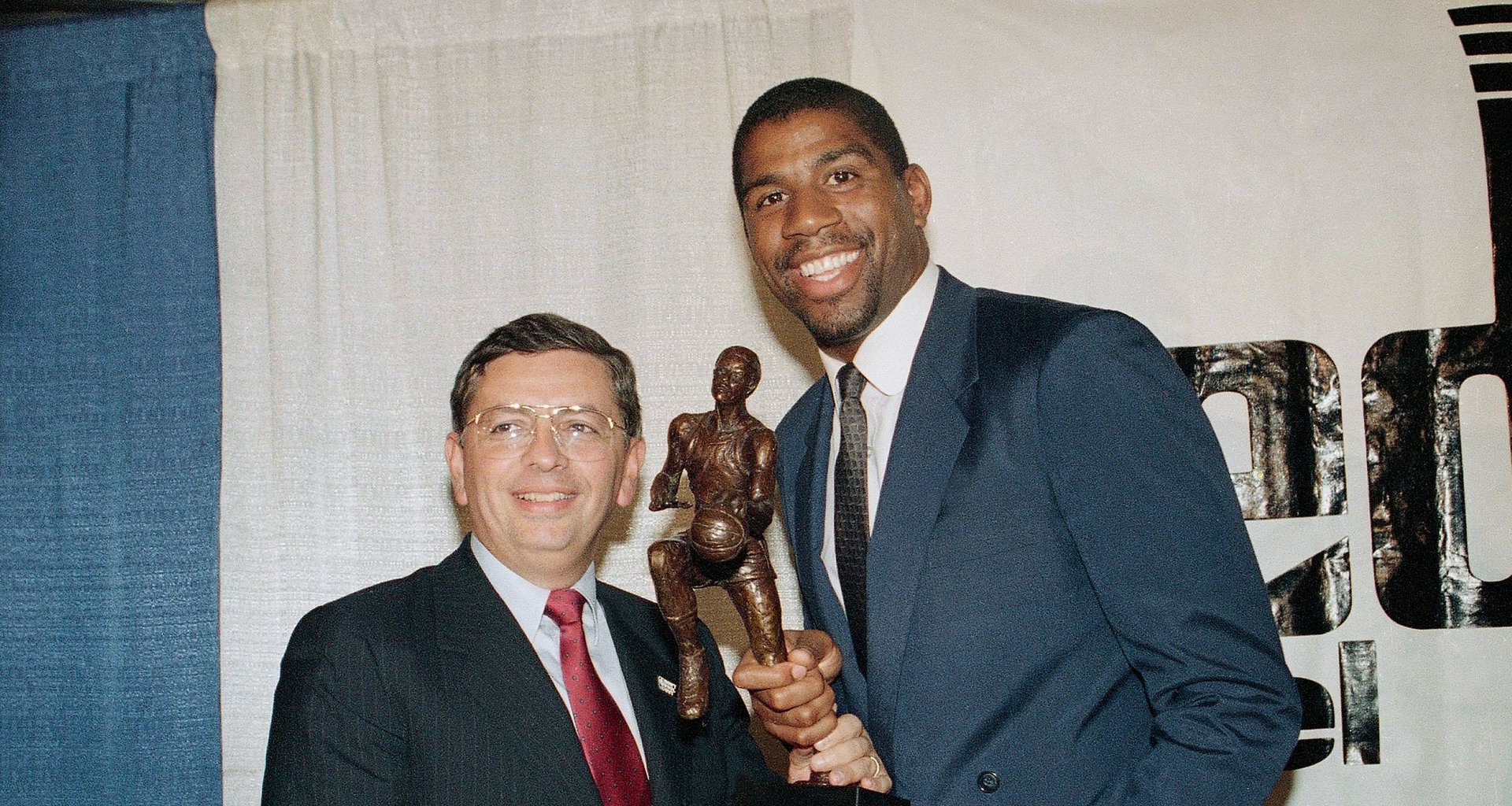David Stern helped Magic Johnson change the conversation about HIV
It’s hard to overstate the shock created by Magic Johnson’s announcement he was HIV positive in November of 1991.


It’s hard to overstate the shock created by Magic Johnson’s announcement he was HIV positive in November of 1991.
AIDS, the disease caused by HIV, was still regarded as a death sentence, one accompanied by fear and paranoia. Johnson wasn’t the first celebrity known to have contracted HIV, but he was one of the biggest: One of the NBA’s brightest and most charismatic stars at the top of his game.
Johnson told the world he was retiring from professional basketball, and that could have been the end of his basketball career were it not for NBA commissioner David Stern. Stern, who died yesterday at 77, led the NBA for 30 years and is widely credited with transforming the league from an afterthought in American sports to a global juggernaut. But his support of Johnson, and how that support dispelled much of the ignorance surrounding HIV and AIDS, might have been his finest hour.
Despite his retirement, Johnson was among the leading vote-getters on fan ballots to play in the 1992 All-Star Game and he was eager to take part. Some of Johnson’s fellow NBA players, however, were apprehensive, fearing they might contract AIDS from sharing the floor with an HIV-infected player. The easy decision for Stern would have been to rule Johnson ineligible, since he wasn’t an active player. But Stern spoke to experts about the disease, and encouraged Johnson to play, in part to educate the world.
Decades later, Stern discussed his decision with amFAR, a nonprofit that raises money for AIDS research:
I learned things that I never thought I would have to know, such as the possibility of HIV passing through fluids, open sores, to get confident that we were proceeding in an intelligent way. Somewhere along the line we realized that this was an opportunity to educate the world and to calm down the fear that anyone with HIV should be treated like a leper.
Johnson not only played, he shined. If some NBA fans thought they’d see a terminally ill man on the court in Orlando, Johnson shattered expectations, finishing with 25 points and nine assists, and was named the game’s MVP. Perhaps more significantly, he was embraced, figuratively and literally, by his fellow players, and finished the game with a series of one-on-one matches with his friends and rivals Michael Jordan and Isiah Thomas. A game some dreaded turned into a celebration.
Johnson later went to play on the US men’s Olympic team in Barcelona, despite the grumbling from other teams (the Australian team’s doctor, for example, warned his players against facing Johnson). Johnson, who is alive and well at 60, tweeted is appreciation yesterday.
Stern had his detractors, and he often ran the NBA as an autocrat. But by standing by Johnson, his impact was profound. As Stern told amFar, “I think that Magic, with a little help from us, changed the debate on AIDS in this country and possibly around the world.”